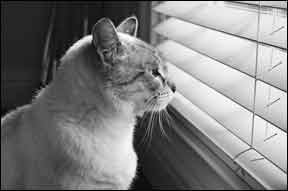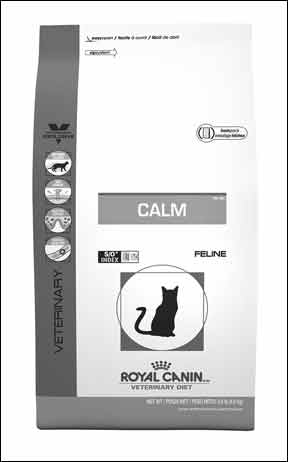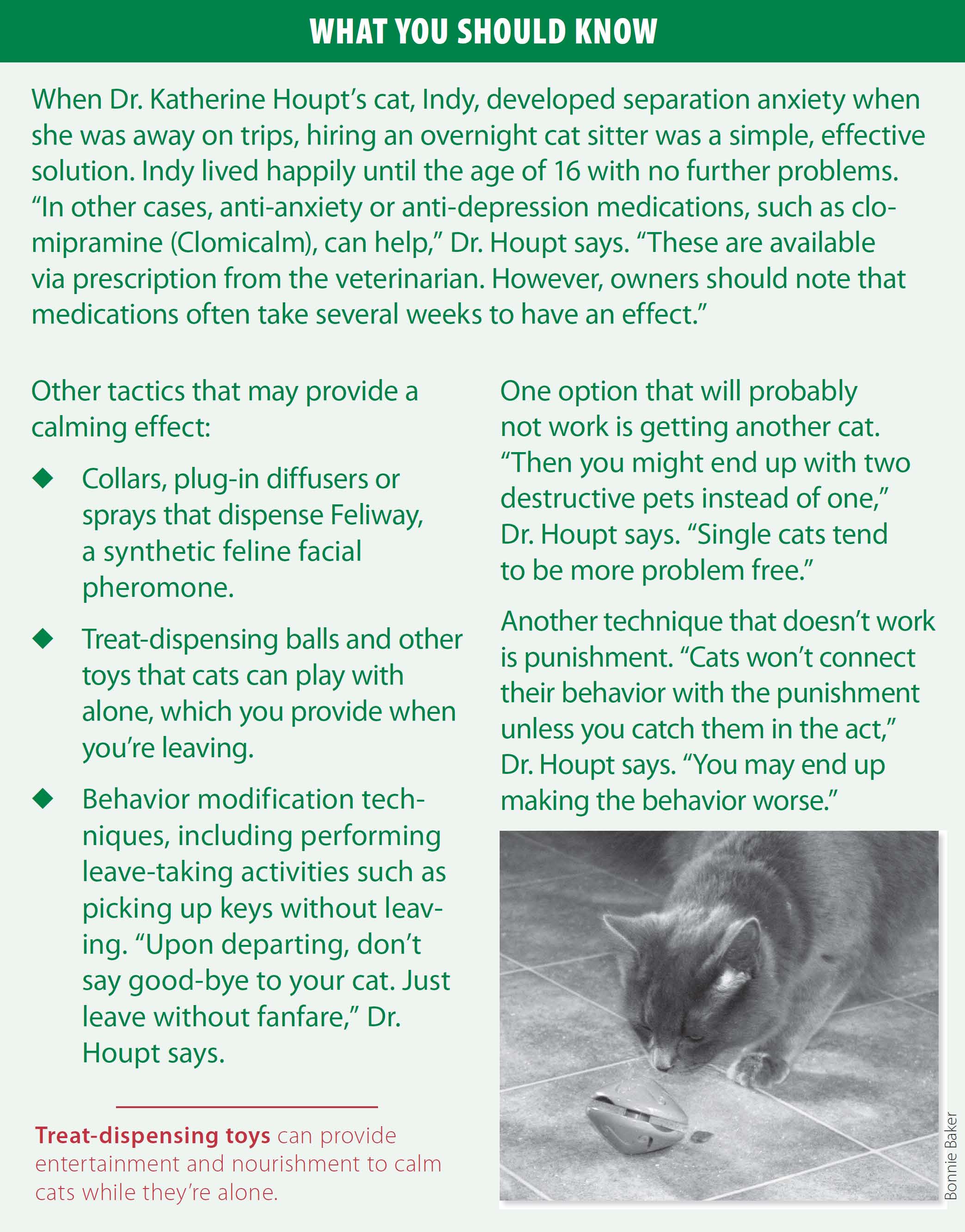Far from being solitary, cats can panic and even suffer a form of grief while we’re away or when the household schedule changes.

288
Collars and diffusers that dispense calming pheromones have become popular among owners eager to ease their cats’ separation anxiety. Less generally known but promising new options are supplements and specialized diets.
“The area of veterinary nutraceuticals to treat anxiety is becoming quite active,” says Katherine A. Houpt, VMD, Ph.D., former president of the American College of Veterinary Behaviorists and James Law Professor emeritus of Animal Behavior at the Cornell University College of Veterinary Medicine. “Dietary supplements with ingredients like green tea, as well as flower essences like Harmonease, are also now available.”
Another development is Royal Canin’s recent introduction of Veterinary Diet Calm Formula Dry Cat Food. “This [therapeutic] diet contains ingredients like L-tryptophan and alpha-casozepine that might help ease separation anxiety,” says Dr. Houpt.
Strong Bonds. Cats have an unfounded reputation as solitary creatures. As most owners know, cats form strong bonds with their human family. “When he was 10 years old, my cat Indy would predictably develop a case of diarrhea whenever I was away on a trip,” Dr. Houpt says. “He eliminated on chairs, beds — basically everywhere. Within a few trips, I figured it out: Indy had separation anxiety.”

288
Cats seem to think of humans as their mothers, as evidenced by the way they purr in our presence and tread on us, Dr. Houpt says. “So yes, separation anxiety in cats does occur, and many more cats may have it than we realize.”
Unlike in dogs, separation anxiety does not occur with greater frequency in rescue cats. “Separation anxiety occurs equally among genders, as well as when other cats are present,” Dr. Houpt says. Owners may even be unaware that it is occurring while they are away. But whether they show it or not, our cats do miss us when we’re gone.”
Cats may live trouble-free for years and then suddenly develop symptoms when their owner’s work schedule changes or a family member departs. Vacations are perhaps the most common trigger.
Separation anxiety in cats is less noticeable than in dogs. “Cats are smaller so they tend to wreak less havoc,” says Dr. Houpt. “Even loud meowing is quieter than barking.”
A Common Sign. House soiling, as Indy did, particularly on the owner’s bed and other possessions, is a common manifestation of feline separation anxiety — even among litter box-trained cats. The familiar scent of a cat’s deposits comforts him, reducing stress. Other signs include scratching furniture and continual meowing.
Before attempting to treat behavioral problems, it’s important to rule out medical problems, Dr. Houpt says. “Should a cat exhibit house-soiling behavior, your veterinarian must first determine whether your cat has bladder, kidney or gastrointestinal issues.”
Because every feline is unique, consult your cat’s veterinarian for a complete assessment and a behavior modification program. Most important, says Dr. Houpt, recognize that separation anxiety is a form of grief. “Your cat is not behaving destructively or being vindictive. He’s not trying to ‘get you back’ for leaving. He’s simply panicked and desperate. We sometimes have owners set up a camcorder while they’re away. They may react more empathetically when they see that frantic cat for themselves.”

450



